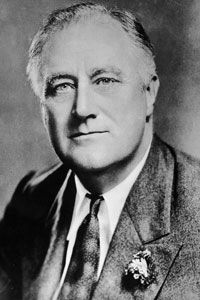The minimum wage is a hot-button issue for politicians and economists. Every time an amendment comes before the U.S. Congress to raise the minimum wage, advocates and critics pull out some convincing arguments to win over public opinion.
The most common argument in support of the minimum wage is that it protects the workers at the lowest rung of the socio-economic ladder. These workers, many of whom represent marginalized groups (women, minorities, youth workers, the disabled, and so on), simply don't have the bargaining power to fight for a minimum living wage without government intervention.
Many advocates for the minimum wage argue that not only is the minimum wage necessary, but that it's too low. Here are some of the statistics they use to support an increase in the minimum wage:
- In the United States, the minimum wage is still 31 percent lower than the average hourly wage of a non-supervisory worker.
- When you adjust minimum wage for inflation, the real value of today's rate is the lowest it's been since 1952 [source: Economic Policy Institute].
- The annual earnings of a full-time minimum wage worker (40 hours a week) is $15,080 before taxes.
Opponents of the minimum wage claim that a fixed minimum wage actually hurts the same low-rung workers it vows to protect. The minimum wage, they say, is an artificial, government-imposed value for an individual worker. The real value of a worker should be decided in the open market.
For example, if a young worker is applying for his first job as a machinist at a factory, the owner of the factory knows that the worker won't produce as many widgets as a more experienced employee. For the factory owner, this employee will clearly bring in less money. Therefore, he deserves a lower hourly pay.
Opponents of the minimum wage argue that if the factory owner is forced to pay that young worker an artificially high minimum wage, then he will choose not to hire the worker, because it won't make financial sense. So, in this scenario, instead of working for less than minimum wage until he gets more experience, the young worker is now unemployed [source: Kibbe].
Economists on both sides of the issue hold up study after study proving that the minimum wage either does or doesn't contribute to a rise in unemployment, so that issue remains unresolved.
Another argument against minimum wage is that it contributes to inflation. Here's how it works: If a manufacturer is suddenly forced to pay his workers $7.25 an hour instead of $6.55 an hour, he needs to raise the price of his product to recoup the costs. This is called cost-push inflation and some economists believe raising the minimum wage is one of the worst culprits.
Other critics say that so-called "full-time" minimum wage workers don't really exist. Instead, they claim, most minimum wage workers provide second or third sources of income to a household and are often middle-class kids working summer jobs. According to U.S. Census statistics, the average annual salary of a family with a minimum wage worker was $43,000 in 2006 [source: Blake].
Some minimum wage reformists say that tax rebates for low-income workers are much more effective than minimum wage laws. The logic is that under the current minimum-wage laws, the only person bearing the financial burden for fighting poverty is the business owner who has to pay his workers minimum wage [source: Landsburg]. If low-wage workers are supported through tax cuts and rebates, then all taxpayers can share the financial burden.
For lots more information on inflation, interest rates and other important economic principles, follow the links on the next page.



